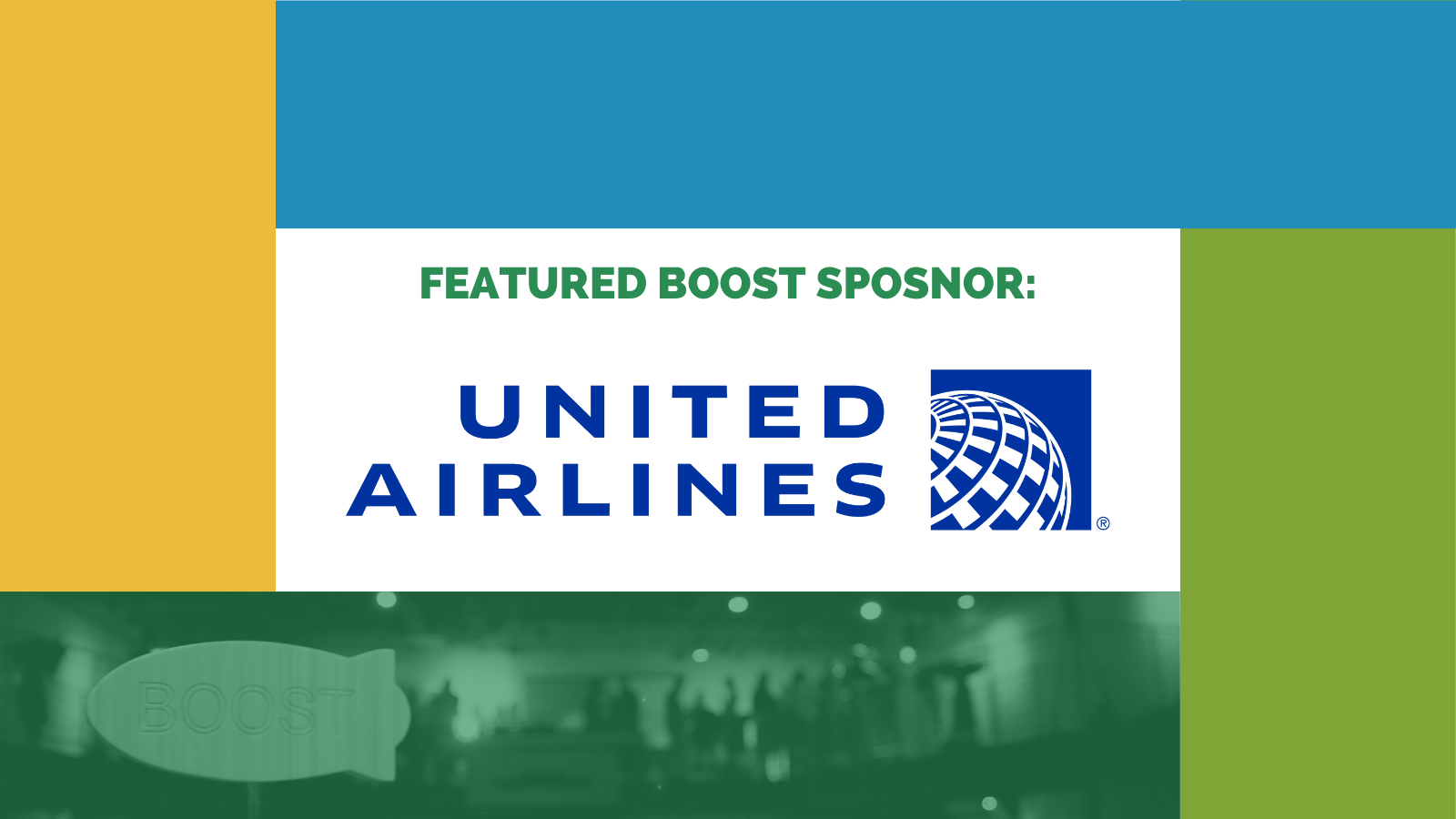
On November 9, 2021, Delta Institute’s associate board, the Delta Emerging Leaders, hosted our 10th annual BOOST event, celebrating a decade of sustainable entrepreneurship. We are grateful to have philanthropic support from the local community through sponsors like United Airlines, who sponsored this year’s United Airlines BOOST Award granted to Tinyshop. We talked with them to share more about their approaches to innovation, entrepreneurship, and sustainability:
Our annual BOOST event showcases the most innovative emerging entrepreneurs in the Midwest. Why is entrepreneurship and innovation important to your company?
At United, we are committed to operating an environmentally sustainable and responsible airline. This means we are constantly working to minimize our environmental impact, and continuously looking for new ways to reduce our carbon footprint in the air, on the ground and at our facilities.
The pathway for United to decarbonize is through innovation, beyond today’s sustainable fuels and carbon capture technologies—to the future aircraft and further evolution of cleantech. As leaders in sustainable aviation, we are thoughtfully looking for ways to help companies that are developing emissions reduction technologies to grow. These companies can not only help us meet our sustainability goals—but usher a transformation for the entire industry.
What do you see as the biggest opportunities and barriers to improve and increase sustainability in the Midwest?
With United’s fuel consumption consisting of 98% of our greenhouse gas emissions, United considers the development of a sustainable aviation fuel (SAF) industry the largest opportunity to further the sustainability of aviation. To incentivize the production and use of SAF in the Midwest, states like Illinois, where United operates one of our largest hubs, could pass a Low Carbon Fuel Standard (LCFS) that includes aviation fuel in its crediting system. There are a few states that have already implemented a LCSF that includes aviation fuel, with California’s LCFS (see note) being a good example. LCFS helps spur the SAF industry, while also making the fuel more cost comparable to conventional jet fuel.
Note: California’s AB 32 (The 2006 Global Warming Solutions Act), which created a Low Carbon Fuel Standard (LCFS) in California that aims to reduce the carbon intensity of the state’s transportation fuel pool by approximately 20% by 2030 via both mandates and incentives. The LCFS program has helped facilitate a market for lower-carbon fuels, for which there is currently insufficient supply in aviation, while contributing to upward price pressure for road-based conventional fuels. As the California LCFS has matured, other states/regions within the United States are proposing similar low carbon-fuel policies.
Your sponsorship is helping support sustainability efforts in the Midwest. Are there other ways in which your company is committed to sustainability?
We have pledged to become 100% green by reducing our greenhouse gas emissions (GHG) 100% by 2050. Importantly, we are the only airline globally that has committed to carbon neutrality without the use of carbon offsets. United, which in 2018 was the first U.S. airline to commit to reducing its greenhouse gas emissions, will instead advance towards carbon neutrality by committing to investments in emerging innovative technology to reduce emissions — rather than indirect measures like carbon-offsetting — in addition to our continued investment in the development and use of sustainable aviation fuel (SAF). United recently announced our commitment to the Science Based Targets Initiative (SBTi) and set a medium-term target to reduce our carbon emissions intensity 50% compared to 2019 levels by 2035. Our strategy to becoming 100% green has three different pathways: reduce, remove, and innovate.
Beyond continuing to fly as efficiently as possible, United has been the industry leader in SAF, beginning in 2009 when we were the first U.S. airline to fly a SAF test flight. Today’s SAF can reduce up to 80% of GHG emissions, on a lifecycle basis, compared to conventional fossil jet fuel, and we currently fly it daily out of our Los Angeles International Airport hub. Through our United Airlines Ventures fund, we’re able to make key investments in SAF technologies and secure purchase agreements—which, to date, are greater than the rest of the world’s airlines’ publicly announced commitments combined.
Is there anything else you’d like to share about why you decided to support BOOST and Delta Institute?
We are the only airline that’s committed to an investment in carbon capture and sequestration. Carbon capture represents an umbrella of climate solutions that can take CO2 from the air and remove it in a way that no longer contributes to climate change. Once captured, this carbon is typically either stored underground permanently (sequestration) or reused to make materials like plastics, or even fuel.
From all of us at Delta Institute, we thank you again for supporting our work and emerging entrepreneurship in the Midwest!

